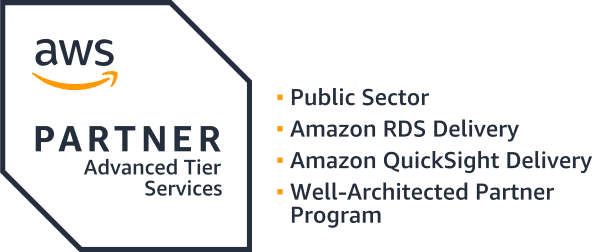What is DevOps?
DevOps stands for Development and Operations Collaboration. It encompasses a range of practices that encourage software development (Dev) and IT operations (Ops) professionals to collaborate closely. This synergy enables the efficient design, development, and delivery of systems software for companies or consumers.
Roles and Responsibilities
DevOps represents the core pillars of software development. It’s a company culture that encourages perceiving the development process through certain lenses. A DevOps engineer’s job is to integrate these behaviors into business practices through:
- Continuous Integration and Continuous Delivery: This involves regularly merging code changes into a central repository, followed by automated testing and builds. The task requires extensive attention to detail for automating the release of new software updates and ensuring that changes are deployable anytime.
- Microservices: Designing software as a collection of small, independent services communicating over APIs.
- Infrastructure as Code: Managing and provisioning computing infrastructure through machine-readable scripts rather than manual processes.
- Configuration Management: Maintaining consistency in software performance by managing and monitoring configuration changes.
- Policy as Code: Implementing security and compliance policies through automated scripts.
- Monitoring: Continuously tracking system performance and health.
- Logging: Recording and managing log data to identify and troubleshoot issues.
A DevOps engineer is expected to cover many roles and responsibilities. They are to be the proverbial glue between all development components, such as planning to ensure the project meets its intended objectives.
- Coordinating with IT professionals in development and operations to design and update software systems.
- Developing and adjusting continuous integration and delivery pipelines.
- Using configurations to automate workloads across one or more cloud providers.
- Demonstrating proficient knowledge in multiple coding languages such as Python, Ruby, Java, and PHP.
As an advanced AWS partner, we bring unparalleled expertise to architect, deploy, and optimize cloud solutions tailored to your unique needs.
Benefits of DevOps
Workplace Productivity
DevOps promotes the automation of various development system components, allowing staff to focus on more critical tasks. Automation helps catch potential errors or security threats, reducing the workload for development and operations teams. For example, automating the employee onboarding process can generate email addresses and passwords for new employees in minutes, streamlining the process and freeing up time for other tasks.
Creates Room for Innovation and Creativity
The speed and collaboration fostered by DevOps enable IT professionals to spend more time brainstorming and developing new systems. This can lead to more streamlined workflows or innovative programs that delight customers. For instance, a company might develop three new software programs for their customers because fewer edits are needed for existing programs.
Ensures Unified Results
Some problems can slip unnoticed if people don’t see the same problem. By combining the efforts of development and operations teams, DevOps ensures unified goals and outcomes for new software programs. This prevents conflicting initiatives and contributes to a more efficient company. Before implementing DevOps, operational IT staff might have found it difficult to revise coding errors or update coding due to their lack of involvement in the development stage.
Aids in Change Management
Change management involves preparing an organization for changes in its internal practices. DevOps aids this process by setting an example and streamlining internal and external processes. For instance, a team of development and operations professionals might automate part of the delivery process, providing customers with real-time order status updates, thereby facilitating smoother transitions and acceptance of new practices.
Enhances Software Quality
DevOps emphasizes rigorous product testing before launching the final product, ensuring that the software has minimal errors in design and function. For example, DevOps might create a content management system (CMS) that helps product managers estimate project completion times accurately, resulting in more reliable and effective software.
Provides an Additional Perspective on IT Security
The combined efforts of development and operations teams under the DevOps model can significantly enhance IT security. Automation catches errors that might be overlooked manually, and having more team members involved in checking each other’s work adds an extra layer of scrutiny. This collaborative approach leads to more secure software systems and processes.
Increases Customer Satisfaction
The end goal is to provide a product that is guaranteed to work and meet customer expectations. Incorporating DevOps into your practices leads to higher-quality software programs, a streamlined transaction process, and more efficient product delivery. For example, automating the order receipt phase allows customers to review their order details immediately, reducing confusion and providing instant confirmation that their order was received.

Expertise
Our professionals have been working with Amazon RDS since the beginning and are keen on best practices that will save you time and money.
Flexible
AllCode provides Nearshore, Offshore, and Hybrid delivery models so that you can scale your business with the adequate skills and resources right when you need it.
Transparent
We provide dedicated project managers that will work directly with your team to ensure that you’re aware of what’s going on every step of the way.
DevOps and AllCode
AllCode’s DevOps services offer comprehensive solutions to streamline your software development and IT operations. We are comfortable leveraging cutting-edge technologies and industry best practices to provide continuous integration and delivery, automated workflows, and our development and operations teams enhanced with collaboration tools. Our expertise covers several fields extensively, including cloud infrastructure, microservices, and configuration management. What we build lets you achieve faster deployment times, improved product quality, and increased operational efficiency.
Get Started Today!
At AllCode, our mission is to leverage our unique skillset and expertise to deliver innovative, top-tier software solutions that empower businesses to thrive in our world’s rapidly-evolving technological landscape.
Work with an expert. Work with AllCode


